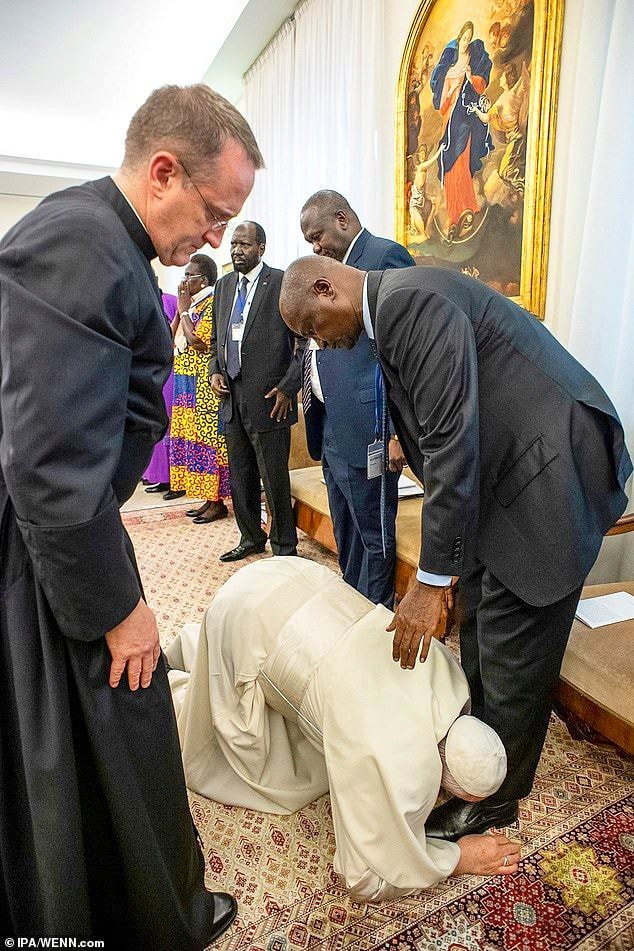
Mk. 10: 35-45
The COVID- 19 pandemic added many new words to our day-to-day vocabulary. One such term is’ ‘quarantine. ’ During this pandemic time, all of us might have experienced the tough experience of being in quarantine. In the 1980’s, this term was widely used when AIDS/HIV came into the picture. At that time, it was presented as a fatal disease with no cure absolutely. There were lots of superstitious beliefs concerning this sickness, which could be contracted through physical touch, using the same toilet etc. A public survey conducted in the US found that 50% of people opined that HIV patients should be quarantined from the main stream of society. In 1987, Princess Diana opened a rehabilitation centre for those who were affected by HIV and AIDS. During her visit, she shook the hand of a patient without wearing her gloves. Her servant leadership opened the eyes of the world, and slowly the social ostracization attitude towards them started to change.
In the history of humanity, the craze for power has been a vital element. In all ages, social structures were defined based on the power that people possessed. Society has always been divided into two based on these power structures. Those who possess power and those who are deprived of it. In the early centuries, it was master and slave. In mediaeval times, it was the landlord and the tenant. In modern times, it is the capitalist and the worker. The power struggle is always marked by injustice and unreasonable exploitation. Those who possessed power looted the weak and treated them as objects for their own gain.
In Jesus’ time, we see this power struggle on various levels. The Jewish nation of Israel was under the yoke of Roman slavery. Though the Romans gave them religious freedom, they were burdened with heavy taxes and strict disciplinary laws. The political rulers of Jesus’ time had a craze for power and they tried to eliminate whomever they considered a threat to their power. We see King Herod trying to kill baby Jesus when he comes to know from wise men that the king of Jews was born in the city of David, and once he could not find the baby Jesus, he massacred the innocent children of Bethlehem. Herodias, the illegal wife of King Herod, killed John the Baptist when his words questioned her immoral lifestyle. During the trial of Jesus, Pilate, though he knew Jesus was innocent, in order to please the Jews and to protect his governorship, condemned Jesus to crucifixion. The religious aristocracy, such as the Pharisees, Sadducees, and scribes who were called to serve the people, exploited them both spiritually and materially. The social status was defined on the basis of the amount of money a person could contribute to the temple treasury.
We see the same power struggle among the apostles. They often quarrelled to find out who was the greatest among them. They ardently believed that Jesus was the Messiah. However, their understanding of the messiah was not that of a suffering servant who dies for his people, but rather of a political Messiah who fights against the Romans and one who is going to re-establish the throne of King David. Therefore, the apostles wanted a prominent place in his kingdom. In this context, James and John recommended the prominent places on his right and left. Jesus teaches them that his kingdom is not of this world, and that the glory of each person is determined by the heavenly Father based on how faithfully one lives Jesus and His gospel.
As a solution to the power struggle that tore humanity in two, Jesus suggests his own life as a model to be imitated, and that is servant leadership. In the letter of St. Paul to the Philippians we read: “Who, though he was in the form of God, did not count equality with God a thing to be grasped, but emptied himself, by taking the form of a servant, being born in the likeness of men. And being found in human form, he humbled himself by becoming obedient to the point of death, even death on a cross.” (Philippians 2:6–8)If any disciple of Jesus wants to be the greatest, it is not achieved by imposing his/her power on others, but by exercising his/her authority just like a slave serving a master. It was a radical departure from the old and aged understanding of power. He expressed it in a tangible manner at the Last Supper by washing the feet of his disciples, usually what a slave does in Jewish culture, and he established the commandment of love: “that you love one another as I have loved you.” (Jn. 15:12).
How far do we manage to live the spirituality of servant leadership? How do we treat our fellow brothers and sisters who approach us for various services in our areas of work? It was William Gaddis who said: “Power doesn’t corrupt people. People corrupt power. “The gift of power for us, the Disciples of Christ, should be a means to empower our fellow brethren. We are called to be servant leaders like Christ in our family, community, society and work places. The washing of the feet that we commemorate on Maundy should not remain as a performance of an annual ritual. Every Eucharist celebration is a reminder of this spirituality that we need to live on a daily basis. May this Eucharistic celebration help us to imbibe the spirituality of humble service and live a life of servant leadership.